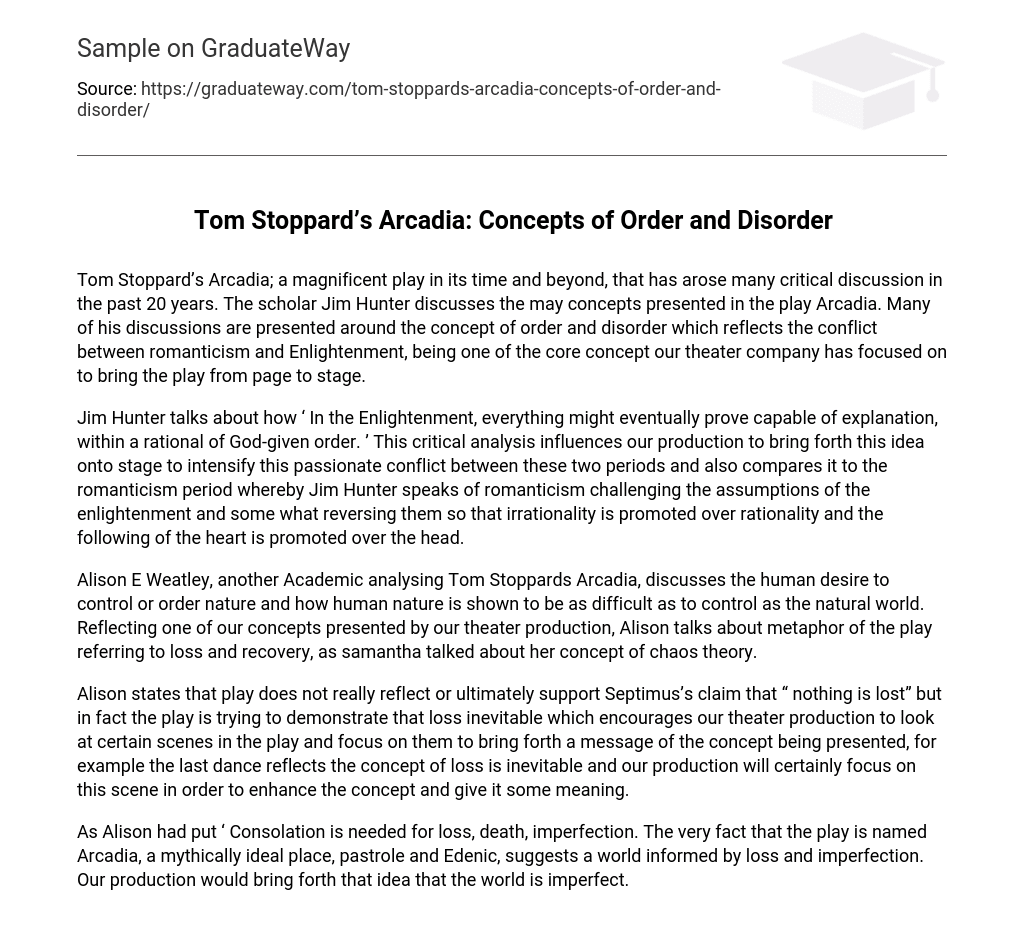Tom Stoppard’s play, Arcadia, is widely regarded as magnificent and has generated numerous critical discussions over the past two decades. Scholar Jim Hunter explores various themes in the play, with a particular emphasis on the juxtaposition of order and disorder. This theme serves to highlight the conflict between romanticism and Enlightenment, which our theater company has prioritized in our adaptation of the play.
Jim Hunter discusses the influence of the Enlightenment on our production, highlighting the belief that everything can be explained within a rational order given by God. This analysis shapes our stage representation, focusing on intensifying the passionate conflict between these two periods. Additionally, Hunter compares this to the period of romanticism, which challenges and somewhat reverses the assumptions of the Enlightenment. In romanticism, irrationality is promoted over rationality and following the heart is prioritized over using the head.
Alison E Weatley, an Academic studying Tom Stoppard’s Arcadia, explores the theme of humans striving to control nature and how human nature can be just as unpredictable as the natural world. This aligns with one of the concepts in our theater production. Alison also discusses the play’s metaphor of loss and recovery, which Samantha referred to when explaining her concept of chaos theory.
According to Alison, the play does not truly uphold Septimus’s belief that “nothing is lost.” Instead, the play aims to show that loss is unavoidable. This has prompted our theater production to examine specific scenes in the play and emphasize them to convey the presented concept. For instance, the concluding dance represents the idea that loss is inevitable, and our production will certainly prioritize this scene to amplify the concept’s significance.
Alison states that consolation is required when faced with loss, death, and imperfection. The play’s name, Arcadia, which denotes a mythological utopian setting resembling Eden, implies a world influenced by imperfections and loss. Our production aims to highlight the concept that the world is inherently flawed.





